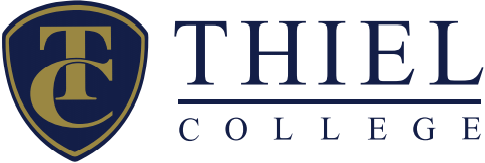Biology Department - Course Offerings
Shown below are some of the courses that are offered by the Biology department at Thiel College. If you would like to explore ALL of the courses that are available at Thiel College, please visit the complete Online Course Catalog.
BIO 110
Ethnobotany
A broad cultural, scientific and economic survey of plants that are useful and harmful to humans. Students learn about the social impact of plants on culture while becoming knowledgeable of their characteristics and local uses. Laboratory exercises include the identification of the major groups of plants, fruits, flowers and seeds as well as the extraction and bioassay of plant chemicals. The laboratory will also include an outside activity such as a field collection of useful plants or a trip to an organic farm or a botanical garden. Three one hour lectures per week and one three hour laboratory. Lab Fee.
4.0 Credits
4.0 Credits
BIO 111
Edible Botany
From the dawn of human history, plants have played an integral role in human societies across the world. This introductory botany course of edible plants is aimed at enhancing your understanding and appreciation of the plant world. This class will cover general plant anatomy and morphology and will focus on plant organs used in the preparation of food, beverages, medicine, psychoactive drugs and spices. The class will discuss the botany of plant families dominating the world of agriculture in North America and around the world. Demonstrations enhancing classroom learning will take place in the Biology Department Greenhouse as well as through observations of campus plantings. Labs will consist of bench work and field trips with the local supermarket serving as a surrogate lab for part of the course. Evaluations of the students are based on class participation, daily laboratory/field exercises, quizzes and group projects. Prerequisite: An appreciation for the plants we eat. Lab fee.
4.0 Credits
4.0 Credits
BIO 116
Conservation Biology
The conservation and preservation of living resources (biodiversity). In addition to traditional wildlife management and forestry, attention is given to endangered species of all types of organisms, and
threatened ecosystems, communities, habitats, and genetic resources. Economic, ecological and aesthetic significance of natural life and habitats are considered with special emphasis on the effects of human activities on these natural phenomena. Case studies of conservation problems. Examination of conservation philosophies. Three lectures.
3.0 Credits
3.0 Credits
BIO 117
Medical Terminology
A study of medical terms related to the language of health care, including origin, construction and
meaning of medical terms presented within a context of techniques for successful mastery and practical utilization. The medical terminology will be presented relative to body systems. Medical records will be used as a learning tool and as a demonstration of usage. Three lectures per week.
3.0 Credits
3.0 Credits
BIO 118
Human Evolution
An exploration of the process that led to the emergence of humans from primate ancestors. The course will consider the evidence of the fossil record, comparisons between humans and related primates through molecular and behavioral analyses, and implications of the facts of human evolution for human studies today.
3.0 Credits
3.0 Credits
BIO 125
Ornithology
An introduction to the study of birds. Topics include the mastery of visual and auditory skills required to identify birds; mastery of skills of record-keeping and reporting to maintain permanent records of bird sightings; the natural history, basic anatomy, physiology, and evolutionary position of birds. Students will perform, analyze, and report on experiments that test hypotheses regarding bird behavior. One two-hour lecture and one three-hour field study period per day during May summer session, plus special field trips. Lab Fee.
4.0 Credits
4.0 Credits
BIO 145
Foundations of Biology
A concepts-oriented, interdisciplinary study of the theories that serve as the foundation of contemporary biology. The principles of inheritance combined with evolutionary theory provide the basis for an exploration of contemporary issues in biology including the generation and maintenance of biodiversity, the biological basis of social behavior, and the processes of natural and cultural selection. (Three lectures and one 3-hour laboratory.) Lab Fee.
4.0 Credits
4.0 Credits


 Webmail
Webmail Google
Google Directory
Directory Campus Offices
Campus Offices Schedule an Event
Schedule an Event Maintenance Issue
Maintenance Issue IT Support
IT Support Academic Catalog
Academic Catalog Academic Resources
Academic Resources Accessibility
Accessibility Attend & Assist
Attend & Assist Buy Books
Buy Books Calendar
Calendar Campus Map
Campus Map Career-Focus 2
Career-Focus 2 Handshake
Handshake Course List
Course List Library
Library Moodle
Moodle Newsroom
Newsroom Public Safety
Public Safety Self Service
Self Service Solution Center
Solution Center Pay My Bill
Pay My Bill Thiel Gear
Thiel Gear Thiel Hub
Thiel Hub Tomcats Care
Tomcats Care Wellness Center
Wellness Center